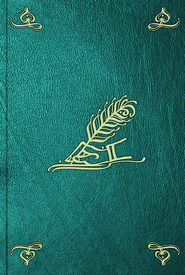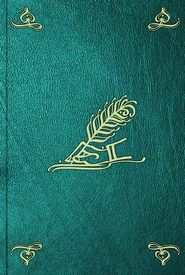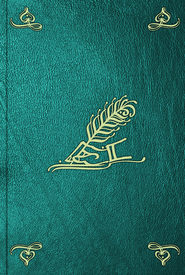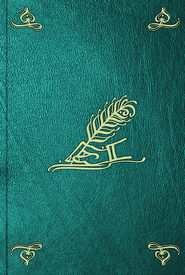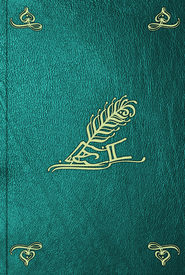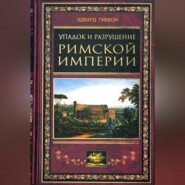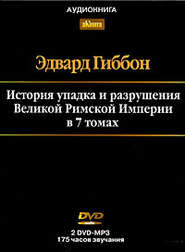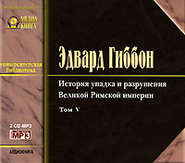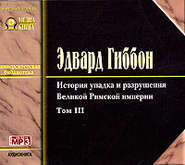По всем вопросам обращайтесь на: info@litportal.ru
(©) 2003-2025.
✖
Private Letters of Edward Gibbon (1753-1794) Volume 1 (of 2)
Настройки чтения
Размер шрифта
Высота строк
Поля
The expedition against Poonah failed. The English were surrounded, and the Convention of Wargaum restored to the Mahrattas all territory acquired since 1756, and Ragoba was given up to Scindiah (January, 1779).
Footnote_423_423
In November, 1778, the French fleet sailed for the West Indies. But St. Lucia was successfully defended by the British forces.
Footnote_424_424
Gibbon was on July 1, 1779, made a Lord Commissioner of Trade and Plantations – a place which he retained until 1782, when the Board was abolished, the work being transferred to the Secretaries of State. He had at one time hoped to obtain the Secretaryship to the Embassy at Paris (see Letter 476). The following lines were written on his acceptance of the Commissionership by, it is said, Charles Fox: —
"King George, in a fright
Lest Gibbon should write
The story of England's disgrace,
Thought no way so sure,
His pen to secure,
As to give the historian a place.
"But the caution is vain, —
'Tis the curse of his reign
That his projects should never succeed;
Though he wrote not a line,
Yet a course of decline
In the author's example we read.
"His book well describes
How corruption and bribes
O'erthrew the great empire of Rome;
And his ratings declare
A degeneracy there,
Which his conduct exhibits at home."
Footnote_425_425
In 1778 appeared An Examination of the Fifteenth and Sixteenth Chapters of Mr. Gibbon's History, etc., by Henry Edward Davis, M.A., of Balliol College, Oxford. The author charged Gibbon with inaccuracy and plagiarism. He replied early in 1779 with his Vindication of some Passages in the Fifteenth and Sixteenth Chapters of the History of the Decline and Fall of the Roman Empire. Walpole calls it "the quintessence of argument, wit, temper, spirit, and consequently of victory."
Footnote_426_426
The court-martial held at Portsmouth entirely acquitted Admiral Keppel on February 11. The news reached London that night. It was treated as a triumph for the Opposition. Ladies appeared at the opera in caps à la Keppel, and blue cockades bearing the Admiral's name were worn. His "Head" became a favourite alehouse sign. Houses were illuminated; guns discharged; bells rung; the windows of the houses of Sir H. Palliser, Lord North, Lord G. Germain, and Lord Sandwich were broken. Sir H. Palliser resigned his seat for Scarborough as well as all his employments, and asked for a court-martial, which acquitted him from any charge of misconduct. He underwent the operation to which Gibbon alludes. "Here are the exact, and all the words which the King said to him, the first time he was at Court afterwards – 'Sir Hugh, how does your leg do?'" (Warner to Selwyn, May, 1779).
Footnote_427_427
The Opposition used every effort to make political capital out of the dispute between Keppel and Palliser. Motions were proposed by them on December 11, 1778, for the trial of Sir Hugh Palliser; on February 19, 1779, for the dismissal of Sir H. Palliser from the Navy; March 3, for a censure on the Admiralty for sending out Admiral Keppel with too small a force; on April 19, for the removal of the Earl of Sandwich from the Admiralty.
Footnote_428_428
The Sussex Militia were ordered to Exeter.
Footnote_429_429
Admiral Pigot, M.P. for Bridgnorth, brother of Lord Pigot. See Letter 311.
Footnote_430_430
Mr. Stratton was a member of the Madras Council, by which Lord Pigot was arrested.
Footnote_431_431
The House resolved on an address to the Crown for the prosecution of Stratton and other members of the Council. The case was tried in the Court of King's Bench, before Lord Mansfield, Wedderburn being for the prosecution and Dunning for the defence. The jury convicted (December 20, 21), and on February 10, 1780, Messrs. Stratton, Brooke, Floyer, and Mackay were fined £1000 apiece.
Footnote_432_432
In the daily papers of May 15, 1779, it was announced that "fourteen ships of the line" had sailed from Brest to attack Admiral Arbuthnot, who lay with a much smaller force at Torbay. Orders were sent to Portsmouth to fit out every available ship for his support.
Footnote_433_433
Sir Joshua Reynolds, in May to July, 1779, painted a portrait of Gibbon. But the picture here referred to is probably that by Wharton.
Footnote_434_434
On June 21 Lord North proposed a Bill for doubling the militia. The Bill was read a third time on June 24. The Lords (June 30) threw out the second clause, which empowered his Majesty "to direct the number of private men to serve in the militia to be doubled." On recommitment to the Commons, it was argued that the amendment was a breach of privilege, as the Bill was a Money Bill. Eventually the amendment was accepted, and the Bill, as amended, received the royal assent on July 3.
Footnote_435_435
Bamber Gascoyne, M.P. for Truro, was made a Commissioner of the Admiralty.
Footnote_436_436
M.P. for Lanarkshire.
Footnote_437_437
His colleagues were Soame Jenyns, Lord R. Spencer, Hon. Charles Greville, William Eden, and Thomas de Grey.
Footnote_438_438
Sir Francis Wronghead, of Bumper Hall, M.P. for Guzzledown, in The Provoked Husband; or, A Journey to London (Vanbrugh and Cibber).
Footnote_439_439
I.e. as a Commissioner of Trade.
Footnote_440_440
Mrs. Gibbon had recently paid a visit to Abergavenny.
Footnote_441_441
Major Holroyd had raised a regiment of horse, called the Sussex, or 22nd Regiment of Light Dragoons, of which he was colonel.







